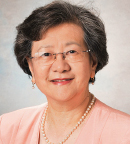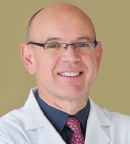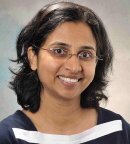The National Cancer Institute has provided a grant to develop a joint cancer drug discovery/development and research education program to focus on cancers that have an increased risk of incidence and/or mortality among underserved communities, namely African Americans, Hispanics, and Native Americans. The program is a partnership between the University of Houston (UH) College of Pharmacy and the Dan L Duncan Comprehensive Cancer Center at Baylor College of Medicine.

Diana Chow, PhD, FNAI

Martin M. Matzuk, MD, PhD
Diana Chow, PhD, FNAI, Professor and Director of the University of Houston College of Pharmacy Pharmaceutics Institute for Drug Education and Research, will lead the effort at the University of Houston. Martin M. Matzuk, MD, PhD, Pathology Professor at Baylor College of Medicine and Director of the Dan L Duncan Comprehensive Cancer Center, will head the alliance there.
“We will use expertise in cancer drug discovery platforms at [Dan L Duncan Comprehensive Cancer Center], and the experience and track record in cancer drug development at UH College of Pharmacy to improve outcomes in underserved communities across the nation,” said Dr. Chow.
Education Component
Not only do disparities exist in cancer outcomes, there is also a lack of diversity in the cancer research workforce. Changing that will increase the community’s understanding of the causes and risk factors for cancer in different populations, work that could eventually be tested in clinical trials, noted Meghana V. Trivedi, PharmD, PhD, Associate Professor of Pharmacology and Clinical Pharmacy, who is leading the cancer research education component of the program and will also participate in a pilot project for cancer drug discovery/development research.

Meghana V. Trivedi, PharmD, PhD
“Much of the basic science and clinical trials data are available from primarily Caucasian populations, and so we understand less about cancers in minority populations,” Dr. Trivedi said.The project could lead to a more representative generation of cancer researchers, bringing fresh insights and encouraging greater involvement of underserved communities.
Besides recruiting cancer researchers, the education program will also enhance current researchers’ awareness and knowledge of cancer health disparities. “One of our objectives is to educate students about different modalities of cancer research; you don’t have to be a biology major to be a cancer researcher,” said Dr. Trivedi. “We’ll be reaching out to students with different majors, encouraging them to explore careers in cancer research and join the effort to find a cure for cancer in underserved ethnic groups.” ■

